PA Robert Smith Has Dedicated His Career to Advancing Healthcare for Latino Populations
Co-Founder of PAs for Latino Health Focuses on Access, Translation, and Advocacy
September 15, 2022
By Jennifer Walker
This August, Robert Smith, MS, DHSc, PA-C, DFAAPA, was the chairman of Partners in Healthcare for Puerto Rico, the first annual summit to discuss healthcare disparities on the island. The conference drew 120 attendees, including PAs and other providers, government officials, and community leaders, who put together a strategic plan to address local health challenges. The group came up with four action items, including advocating for a PA practice law in Puerto Rico that solely focuses on PAs and that allows them to practice to the fullest extent of their education and training. This would be a first step toward addressing the lack of providers in the country.
“Access to care is terrible,” says Smith, who is the co-founder of PAs for Latino Health (PALH), one of AAPA’s 12 caucuses. “People are waiting nine months to get an appointment and a year sometimes for specialty appointments. PAs sure can be part of the solution. That’s what [our profession] was created for.”
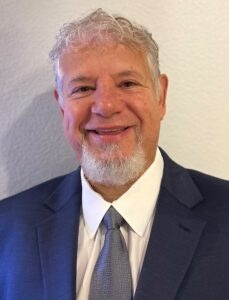
Smith has dedicated his career to health equity and providing care in underserved communities. He has built numerous healthcare clinics in rural areas of Texas and currently serves as a regional lead clinician for Top Care/MD Medical Group (MDMG)/Pediatric Associates, which has multiple clinics throughout southern California, Texas, and Florida. He has also been heavily involved in advocacy, serving as chair of the AAPA Minority Affairs Committee, which existed from 1974 to 2000, and as a member of the AAPA Diversity, Equity and Inclusion (DEI) Commission; co-founder and current treasurer for PALH; trustee of the Physician Assistant History Society; and president and secretary of the Texas Academy of Physician Assistants.
“If you serve on committees and in organizations like these, you get to make changes,” Smith says. He also focuses on strategic alliances and has served as AAPA’s liaison to the National Hispanic Medical Association (NHMA), a delegate with AAPA’s House of Delegates (HOD), and a DEI director for several groups. “In my clinic, I affect one person at a time every single day. But when you get to this level, you can affect change for people by the thousands just by one thing you do. And that’s what I wanted to do.”
Building a PA Career Devoted to Health Equity
Smith was born as “Salvador Ramirez” in Mexico. After moving to the United States in 1963 at the age of five, his first-grade teacher in Denver, Colorado, changed his name to “Robert Smith.” He kept the name because it was too expensive to change it back.
Years later, Smith enlisted in the U.S. Coast Guard in 1978, where he served as a hospital corpsman. He worked in the Marine safety office, the training center, and the support center, but his proudest accomplishment was when he was on independent duty on the Coast Guard Cutter Ute vessel, serving as the ship’s corpsman and responsible for the healthcare of 125 people.
Because of this background and his desire to care for others, Smith looked into becoming a PA. While he was stationed at McClellan Air Force Base in Sacramento, California, a colleague told him about the PA program at the University of California, Davis. Smith was worried about balancing the program’s 40-plus required clinical hours every week with his service in the U.S. Coast Guard. So, he worked out a deal where the two flight surgeons on his base became his preceptors. He was then able to fulfill his clinical hours in the Flight Surgeon’s Office while also pursuing his PA degree.
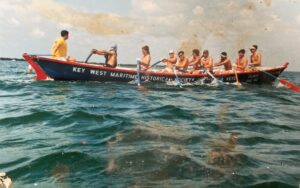
While he was a PA student, Smith also volunteered with a free migrant health clinic, which gave him his first experience working with a diverse patient population. Patients came to the clinic with a range of illnesses: chronic conditions like high blood pressure and diabetes; a need for exams and vaccines; and injuries from working in the fields or pesticide exposure.
Smith left military service in 1989 and graduated from his PA program in 1990. His first jobs were at Tlaloc Family Clinic, where he cared for a large Asian American population, and at Yolo County Jail, where he saw patients on the jail’s large farm, both located in Sacramento. He also moved back to Denver and spent a year at the Lowry Air Force Base Clinic and another year working with Russell Simpson, MD, a private practice physician, in family medicine and internal medicine.
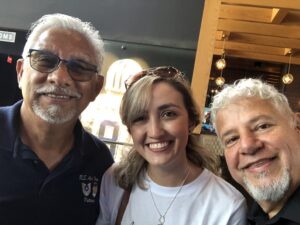
Practicing in Texas Clinics
Then in 1993, Bethania Hospital asked Smith to open clinics in underserved communities in Wichita Falls, Texas. On his way to the AAPA conference in Miami with his wife, Antoinette (Toni), and three daughters, Smith stopped at the hospital, where he met with staff. He also visited the location of the first clinic, about 20 miles away in a town called Holliday, which had lacked a local healthcare provider for more than a decade.
After the conference, while they were driving back home to Denver, Smith decided with his family that he would take the position in Texas. While driving down the road, he got to work with his daughters brainstorming a list of what he would need to open a new clinic — everything from medical supplies to tables and trash cans.
Smith and his family moved to Wichita Falls in August of that year, where he had several members of the hospital staff, including the entire maintenance team, working with him to open the clinic in Holliday. In six weeks, the Holliday Community Health Clinic was up and running. “Within a year, we were bursting at the seams and ready to open another clinic,” Smith says. He went on to open three clinics with Bethania Hospital.
From 1995 to 2010, Smith practiced at three other clinics in Texas: Iowa Park Clinic in Iowa Park; the Family Health Clinic of Texoma in Wichita Falls, which he owned and built in an Old Dairy Queen building; and North Hills Family Medicine in North Richland Hills. At all of these locations, he focused on caring for uninsured and underinsured patients from underserved communities. He also spent time working in psychiatry and long-term healthcare with Senior PsychCare before moving into his current position with Top Care/MDMG/Pediatric Associates, where he has been since 2011.
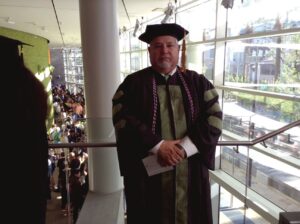
In his role as regional lead clinician, Smith—who holds a Master of Science in advanced physician assistant studies and a Doctor of Health Science in organizational behavior and leadership, both from A.T. Still University in Arizona—balances seeing his own patients with providing administrative and personnel support to providers. He sees about 30 patients a day and supervises 65 providers, including physicians, PAs, and NPs.
Smith has also been involved with advocacy since he was a PA student, when he went to his first AAPA conference in San Francisco in 1988. There, he was introduced to the AAPA Minority Affairs Committee (MAC), which he would go on to chair from 1998 to 2000 with a focus on giving a voice to all of AAPA’s caucuses.
Creating the Caucus Congress
The MAC was established in the 1970s to increase diversity in PA programs and AAPA constituent chapters and to provide a voice for PAs of color within the profession. During his time as chair, Smith is most proud of creating the Caucus Congress, which today allows each of AAPA’s caucuses to have their own representation on AAPA’s House of Delegates (HOD).
Some of AAPA’s caucuses include the African Heritage PA Caucus, the Fellowship of Christian PAs, the Jewish Association of PAs, the LBGT PA Caucus, PAs in Asian Health, and many more. The first step to each of these caucuses having their own representation came in the late 1990s, when they were all part of the newly created Caucus Congress and collectively had one vote on AAPA’s HOD. The caucuses took turns representing the Congress on the HOD, which gave each group an opportunity to discuss issues that were important to them and to be a representative for the other caucuses.
After some time with this structure, Smith advocated for each caucus to have their own vote within the HOD instead of having one collective vote for all of the groups. “We had been doing this for a long time, and our groups were steady and strong. We needed to have our own representation,” Smith says. “Now any time a caucus is formed, they automatically get representation in the House of Delegates.”
PAs for Latino Health (PALH) is one of these caucuses. Smith co-founded the group with Ron Garcia-Herrera, PA-C, a few years after attending that first AAPA conference in San Francisco. “We needed the Latino PAs to be represented,” he says. In 1992, PAs for Latino Heritage, as it was called then, was formed.
Making Progress Through PAs for Latino Health
PALH—which was later renamed to PAs for Latino Health to better represent other PAs serving Latino communities—held its first meeting with five other participants on the stairs of the Opryland Hotel in Nashville, Tennessee, during AAPA’s 1992 annual conference. Today, the caucus has several hundred members and is open to any PA who is working within the Latino community.
In the last three decades, PALH has been focused on three main issues: establishing a term for ‘PA’ in Spanish to help Spanish-speaking patients understand the role of PAs and how they fit within the healthcare landscape, translating AAPA materials into Spanish and other languages, and advocating and lobbying for the PA profession in Puerto Rico.
In 1998, after two years of research, PALH submitted its first resolution to the AAPA HOD to adopt an official translation for “PA” in Spanish. PALH consulted with a linguist at Metropolitan State University in Wichita Falls, Texas, and conducted focus groups with patients and Spanish-speaking providers to create the new term “asociado médico.”
“If we say ‘physician assistant’ to someone in Spanish, they have no clue what we are talking about. They don’t know who we are or how we work,” Smith says. “But if we say ‘asociado médico,’ or associate physician, they know immediately we are part of the healthcare team and we’re there to take care of them.” HOD passed the resolution to use the term “asociado medico” in 1998, then passed another resolution last year to have AAPA market the term as they would “physician associate.”

Advancing PA Practice in Puerto Rico
In 2021, PALH helped Academia de Asociados Médicos de Puerto Rico (AAMPR), the newest AAPA caucus, pass a resolution through HOD that AAPA materials would be translated into Spanish and other languages. For many years, PALH members would perform the translation themselves, but now the group advocates for an official translator. “If we’re talking about equity, Spanish is the second largest language in the United States,” says Smith, adding that PALH also helped bring Canopy Medical Spanish to AAPA so members can learn medical Spanish. “We need materials in as many languages as possible to tell people about our profession.”
In Puerto Rico, Smith—along with Garcia, PALH’s co-founder; Rafael Pomales, Jr., MHS, PA-C, DFAAPA, current president of PALH and AAMPR; Maryann Ferrera Ramos, MPH, PA-C, legislative chair of PALH and AAMPR; and Luis Ramos, PA-C, among others—has devoted years to advocating for changes that would allow PAs to practice medicine. PALH supported the establishment of an inaugural, homegrown PA program in Puerto Rico at the San Juan Bautista School of Medicine in Caguas, which opened in January of 2021. The program currently has two cohorts of about 70 students, the first of which will graduate in May 2023.
Many of these students have expressed an interest in practicing in Puerto Rico. Even in the United States, Smith says, “There are a lot of PAs who are from Puerto Rico and they want to go back and work in Puerto Rico, but they can’t. There’s nowhere for them to work.”
Enacting a PA practice law that applies only to PAs would be a good foothold in efforts to establish the profession to the island. The current law, passed by the Legislative Assembly of Puerto Rico in 2017, allows PAs to become licensed as médico assistentes, but they cannot practice to the full extent of their licenses. The law also applies to non-PAs who are mainly physicians who have not passed their medical licensing exams and are not qualified to practice medicine, Smith says.
“The problem with this law is that these providers are not trained or certified as PAs but are being called PAs,” he adds. “They are designated by law as médico assistentes, but they can call themselves PAs on the island.” A new law specifically for asociados médicos, or PAs, would address the confusion this current law creates while giving the PA profession a solid foundation to provide access and care in Puerto Rico.
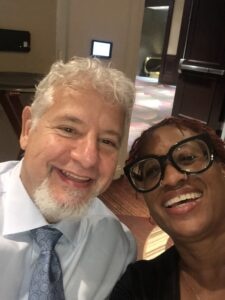
The next challenge is the reimbursement structure for physicians, which would ultimately affect PAs. “One of the biggest sticking points [in Puerto Rico] has been pay,” Smith says. “This model pays physicians a third of what they would get paid in the United States. Obviously, that really hurts, and that’s what we’re hoping to change.”
One piece of good news is that Federally Qualified Health Centers (FQHC) in Puerto Rico fall under United States federal guidelines, so PAs could technically practice there. Smith is working to educate FQHC administrators about how PAs are effective in providing access and care and that there are opportunities for them in Puerto Rico.
Smith sees bringing PAs to Puerto Rico as the beginning of helping the profession to expand to even more Latin countries, such as the Dominican Republic, Haiti, Panama, El Salvador, Nicaragua, and eventually Mexico. “If we can establish PA schools in these countries and create laws for PAs to practice, we can create tracks where people can go to an accredited PA program, graduate, find work, and help people,” says Smith, who has been married to his wife for 43 years, and enjoys spending time with his eight grandkids. “That’s my next goal.”
Jennifer Walker is a freelance writer in Baltimore, MD. Contact Jennifer at [email protected].
You May Also Like
Meet Two PAs Who Created a Free Mobile Clinic for Uninsured Patients
“How PAs Go Beyond” and “Facts About PAs” (Spanish versions)
Once an Interpreter, PA Now Serves Spanish-Speaking Population
PA Foundation Nutrition Resources (Spanish versions)
Thank you for reading AAPA’s News Central
You have 2 articles left this month. Create a free account to read more stories, or become a member for more access to exclusive benefits! Already have an account? Log in.



